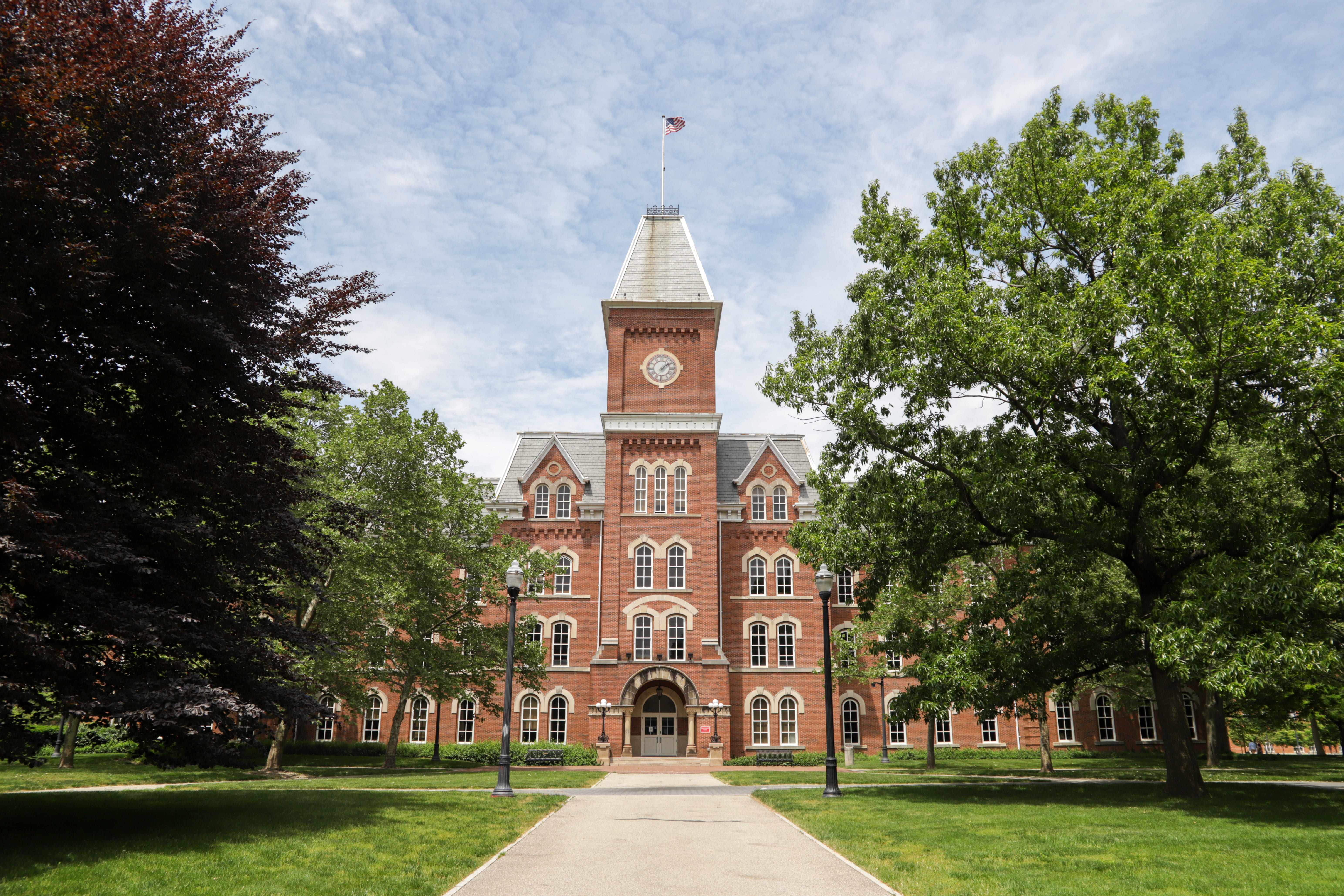
Nick Messenger, president of the Council of Graduate Students, said Ohio State graduate students are facing several challenges, including delayed paychecks and approval of contracts as well as being able to finish their degrees on time. Credit: Mackenzie Shanklin | Photo Editor
The pandemic rocked the country, and Ohio State graduate students felt its repercussions and are now unsure if they will be able to finish their degrees, find childcare and get their paychecks on time.
Nick Messenger, president of the Council of Graduate Students, said the organization is working alongside University President Kristina M. Johnson and other administrators to resolve challenges graduate students are facing and create new initiatives to diversify enrollment and provide more resources to graduate students.
“I think a lot of universities across the country have these same challenges, but I think we have a new leadership team at Ohio State that is really going to be unique and really effective at actually solving some of them,” Messenger, a third-year Ph.D. candidate in agricultural, environmental and development economics, said.
Throughout the summer 2020 semester, Messenger said graduate students struggled with technological limitations and understanding of Workday, a platform used to manage student-employee data.
Messenger said due to unfamiliarity with how to input contracts or new positions into the Workday software, many graduate students have dealt with their contracts not getting approved before a deadline, or their paychecks not coming in when expected.
“I think this is still a challenge we’re going to move forward — how do we process graduate students to Workday in a way that makes sure that they’re paid on time and paid correctly and that their tuition and fee waivers are posted correctly?” Messenger said.
Messenger said the council is working to diversify graduate student enrollment. He said Johnson’s Race, Inclusion and Social Equity Initiative — in which the university will hire 150 diverse, tenure-track faculty in the coming years — will help encourage graduate students of diverse backgrounds to attend and feel supported while studying at Ohio State.
“We’re going to have to really do the work as an institution to support those graduate students once they’re here to enable them to be successful, to enable them to receive their degree and to build a culture of university that is inclusive and supportive,” Messenger said.
Messenger added that Johnson and the council are working on an initiative to reduce the time it takes for a graduate student to receive his or her degree by providing resources to help students complete their research, combat mental health barriers and develop their professional skills.
“We really want to partner with the president and think about, ‘How do we try to support students in completing — especially our Ph.D. students — completing that degree as close to five years as we can get them?’ ” Messenger said.
However, due to the pandemic’s impact on university finances, graduate students, specifically those whose research required data from human subjects and data abroad, might require a fifth-year to finish their research but cannot be funded by the university beyond their current contract, Messenger said. As a result, some students might not be able to complete their degrees.
Messenger said the university is addressing this concern and the initiative to reduce the time it takes to get a degree will help prevent similar cases in the future.
The council also looks to prioritize affordable housing and childcare options for graduate students with families, Messenger said. Johnson has spoken with the organization about supporting students struggling financially and is conversing with the council to enact changes.
University spokesperson Ben Johnson said in an email that through collaboration, the council and the university were able to create a Carmen Canvas orientation module for incoming graduate students.
Messenger said the module, which launched in early August, includes resources for students with a video from Melissa Shivers, vice president for the Office of Student Life, on what the university can provide for them. He said the module was well received by students, and the council is working to provide the module for every student in the graduate school.
Messenger said these initiatives represent the groundwork the council is hoping to lay, and the organization will continue to collaborate with the university to address any future concerns.
“At the end of the day, this is a leadership group here who has been very upfront that they’re dedicated to graduate students and improving graduate education and that experience at Ohio State,” Messenger said. “So, we’ve been really able to be very candid about the problems with them, very blunt and say, ‘You know here’s what we think is wrong from the student perspective,’ and they’ve listened to that.”


